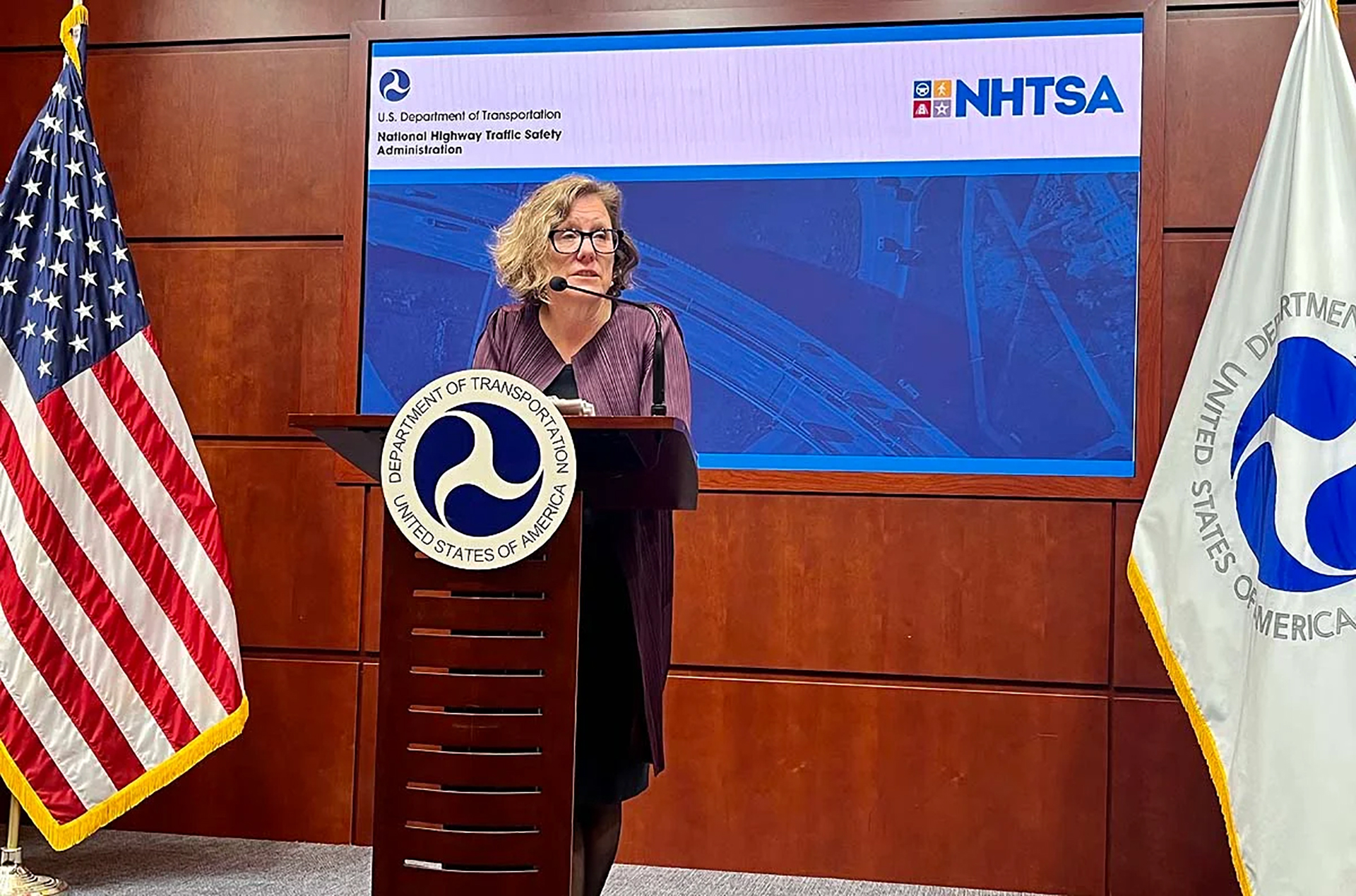WASHINGTON, May 31 (Reuters) – The Biden administration on Wednesday proposed requiring automatic emergency braking (AEB) on all new passenger cars and light trucks and set new performance requirements, one of the most significant safety regulations proposed in recent years.
The new requirements proposed by the National Highway Traffic Safety Administration (NHTSA) would require most vehicles to comply three years after being finalized and is expected to dramatically reduce crashes associated with pedestrians and rear-end crashes.
The auto safety agency projects the rule would save at least 360 lives and reduce injuries by at least 24,000 annually.
Congress directed NHTSA in the 2021 infrastructure law to create a rule to establish minimum performance standards for AEB systems, which use various sensors like cameras and radar to detect when a vehicle is close to crashing, and then automatically applies brakes if the driver has not done so.
NHTSA chief counsel Ann Carlson said the proposal seeks to “require all cars to be able to stop and avoid contact with a vehicle in front of them up to 62 miles per hour. And the proposal would require pedestrian AEB, including requiring that AEB recognize and avoid pedestrians at night.”
The number of pedestrians killed in 2021 jumped 13% to 7,342, the highest number since 1981.
The Alliance for Automotive Innovation, a group representing major automakers, said it was reviewing the proposal.
The Insurance Institute for Highway Safety (IIHS) said requiring the system to prevent front-into-rear crashes at higher speeds “will improve the systems that are currently standard on most new vehicles.
In 2016, 20 automakers voluntarily agreed to make automatic emergency braking standard on nearly all U.S. vehicles by 2022.
In December, IIHS said 15 of the 20 automakers equipped at least 95% of vehicles with AEB, while General Motors (GM.N) had produced 73% of vehicles with AEB. GM said Wednesday it will make AEB standard on 98% of its 2023 model vehicles.









